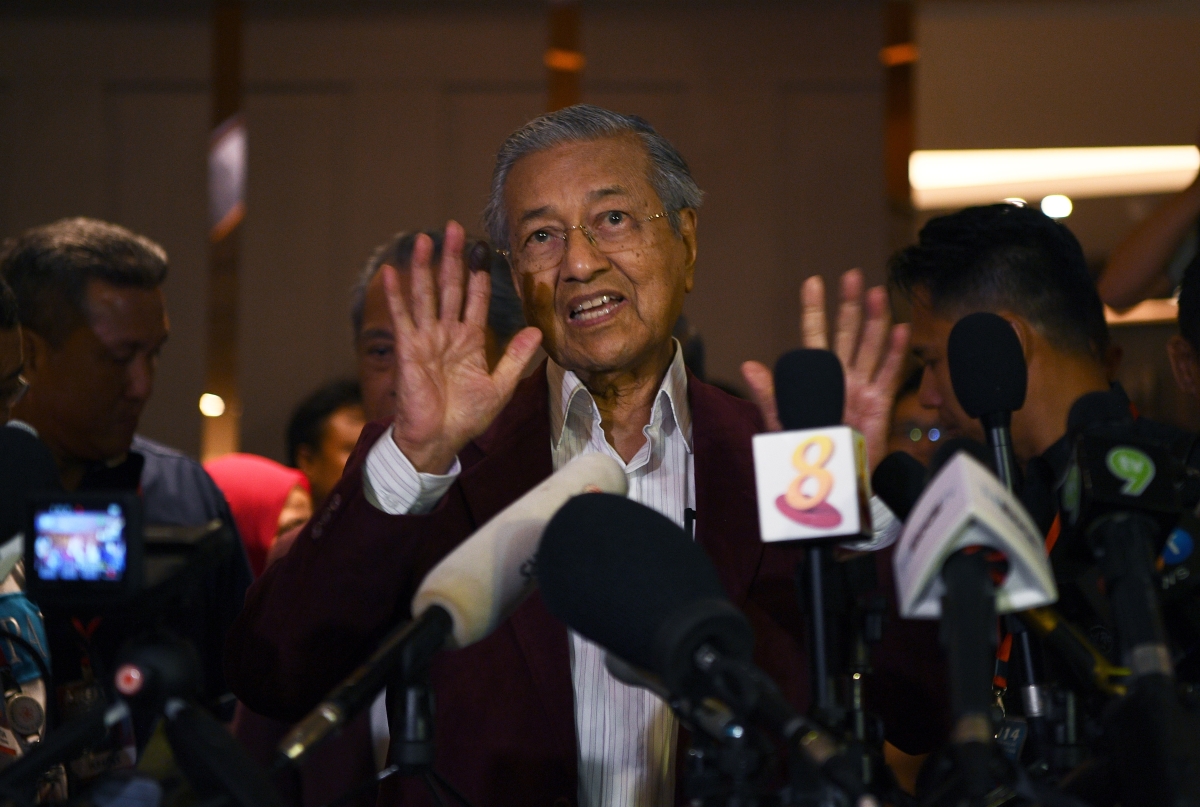The six-decade stranglehold of Malaysia’s ruling coalition is smashed. Dr Mahathir Mohamad, two months shy of 93, emerged from retirement to ignite citizens to overthrow a shamelessly kleptocratic regime. Citizens astonished at the fall of UMNO waited anxiously as the Palace juggled technicalities, delaying swearing-in the seventh prime minister till 9.30pm on 10 May.
Sultan Muhammad V had revoked Mahathir’s Kelantan State award in February for derogatory remarks about Bugis pirates. He is now the king. Kingship rotates among the nine hereditary rulers of Malaya. Mahathir allegedly also plotted to depose his father as Sultan in 1993. That rancour remains.
The underlying humour and interracial goodwill which Malaysians have always had in abundance has been uncorked. A new era dawns. It may trigger nationwide optimism to reverse the distrust, ethnic and religious exceptionalism that has poisoned governance since the racial riots of 13 May 1969.
As citizens ballot-booted the venal Najib Razak, the man who unseated him has much to answer for too. There is residual slow burn at how Mahathir frog-marched the country to his drumbeat of Malay nationalism. Two generations of non-Malay youth were denied government jobs, university places and fair access to scholarships.
Fate hands Mahathir a second chance. Can he cure the nation of the crippling disease he injected into its veins? He has had enough time for introspection. He has asked for forgiveness. Citizens across the racial spectrum voted his return. Some even hail him as the nation’s saviour.
Mediocrity rules
What is utterly contradictory is that Mahathir engineered the rot in Malaysian governance. He entrenched racist policies, destroyed English as the medium of education, privatised public assets into piggy banks for cronies, marginalised non-Malay citizens and turned the civil service, police, and military into ethnic preserves.
Under Mahathir, public institutions allowed mediocrity to fill the ranks and froth to power. His deputy Anwar, the leader of ABIM, a Muslim youth movement, embedded an Islamic religious authority in the PM’s office, which infects the civil service and spooks citizens. The previous excellence of Malaya faded. Its best brains emigrated.
This distortion of politics, economics, religion, and governance was stamped with impunity under the swagger of “Ketuanan Melayu,” (Malay Supremacy). Mahathir sought to conjure a Malay class of instant millionaires – as a counterbalance to the wealth of Chinese businessmen. That bombed. The non-Malay poor were ignored.
Economic overreach
Mahathir’s misguided ambitions did not stop there. He tried to corner the London tin market and trigger a run on the pound sterling. He abused the Malaysian central bank’s foreign reserves for these misadventures. That was not the end of it. He raided Petronas and the Employees’ Provident Fund to bail out corporations that imploded under the leadership of UMNO cronies.
The national airline MAS, the shipping corporation, steel corporation and the ill-advised national car project Proton were pumped with pointless infusions of cash from public savings. All failed. Chinese banks in West and East Malaysia were strong-armed to sell to more cronies — paid for by politically induced loans.
While goofing-up business and the economy, Mahathir’s quid-pro-quo deals siphoned cash into the UMNO treasury for patronage and campaign funds. He amended the party constitution to eliminate challenges to him. Development budgets were channelled through local party chiefs so all could snout from the public trough.
The massive redistribution of public wealth into private crony pockets was also driven by huge infrastructure spending. That was adroitly handled by his Public Works Minister, Samy Vellu, leader of the coalition Indian party, from 1980 to 2008, an unbroken grip of 28 lucrative years. Malaysia has excellent highways.
No checks-and-balances
The press was emasculated, independent judges sacked, and the constitutional oversight of the king curbed. Mahathir was thorough in removing checks-and-balances on his rule. He remained the unchallenged boss for 22 years. He is praised for capital controls and pegging the ringgit during the 1997-98 Asian financial crisis, ignoring IMF advice.
He is not motivated by greed. Mahathir neither drinks nor smokes. He does not golf. He did not amass wealth. He wanted absolute power. He had no qualms destroying anyone who challenged him. He was, like the late Lee Kuan Yew, the founder of modern Singapore, Machiavellian in outfoxing rivals and ruthless in decapitating them.
Under his watch, illegal immigrants from Sulu in the southern Philippines flooded into Sabah. They sport blue identity cards denied to thousands of Chinese and Indian Malaysians. Bangladeshis followed. A tacit policy of open entry to Muslims brings Bosnians, Pakistanis, terrorist plotters and scamming Nigerians into the capital.
Man of the hour
Did guilt, outrage at kleptocracy or an urge to re-script his legacy spark the nonagenarian warrior to accept the GE14 challenge? Mahathir reconciled with veteran oppositionist Lim Kit Siang and his son Lim Guan Eng, both of whom he incarcerated under internal security laws. He apologized to Anwar and family for jailing him on sodomy charges.
That remorse is notable from a proud man who never before acknowledged he was wrong about anything. Perhaps leading a multiracial coalition against a protégé who leveraged his legacy into bizarre extremes showed him how ridiculous it all was.
Mahathir is the man of the hour. His new cabinet of reform-minded Malaysians think beyond race and creed. Let the doctor and his team now rebuild a nation all citizens can embrace. It may take another two generations to repair. Better late than never. He will be remembered with affection and respect by all Malaysians. – Asia Sentinel
